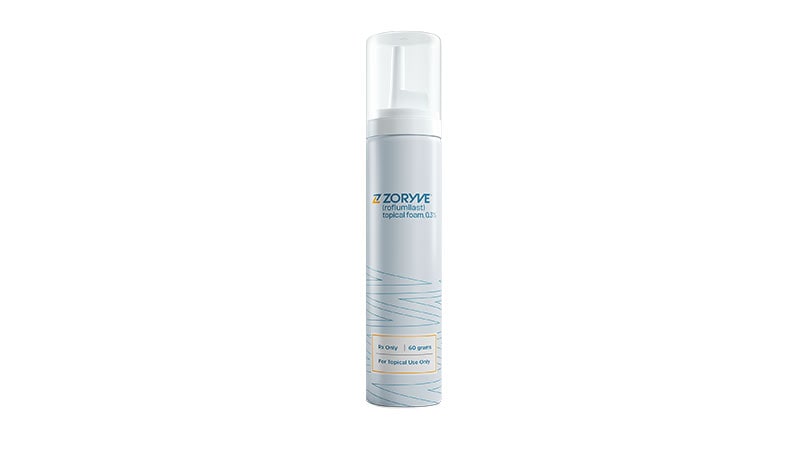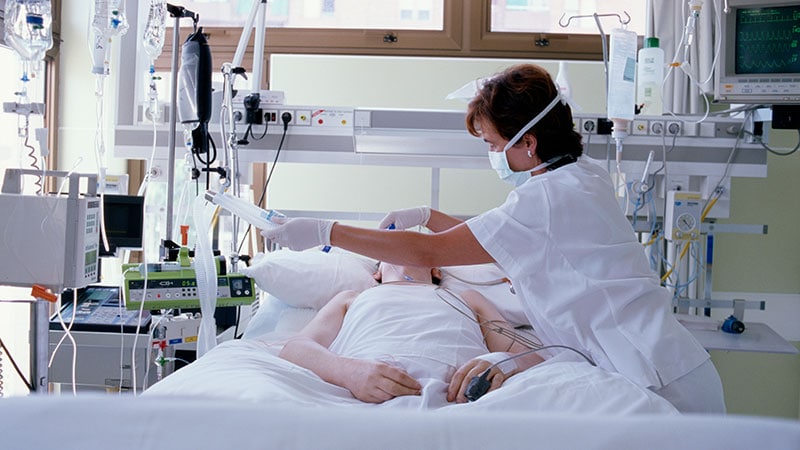Atogepant for Episodic Migraine Prevention: Phase 3 Data
In the phase 3b ELEVATE trial, preventive treatment with atogepant (Qulipta) significantly reduced monthly migraine days compared to placebo in adults with episodic migraine in whom two to four classes of oral preventive medications had previously failed.
The oral calcitonin gene-related peptide (CGRP) receptor antagonist is approved in the US as a preventive agent for both episodic and chronic migraine, but its efficacy and safety in patients in whom conventional oral preventive migraine treatments have failed has not been evaluated in a dedicated trial, until now.
ELEVATE is the first study of an oral CGRP receptor antagonist in this "difficult-to-treat population, which resembles patient populations typically seeking care at specialized headache centers," wrote Cristina Tassorelli, MD, University of Pavia, Italy, and coauthors.
In the trial, atogepant 60 mg once a day led to statistically significant improvements, compared with placebo, in the primary and all secondary endpoints pertaining to headache-related clinical outcomes.
Initial results from the ELEVATE trial were presented last year at the American Academy of Neurology annual meeting, as reported by Medscape Medical News. The full results were published online on February 13, 2024, in The Lancet Neurology.
Personalized Treatment
ELEVATE was conducted at 73 sites in 13 countries among adults aged 18-80 years with episodic migraine (4 to 14 monthly migraine days, and fewer than 15 monthly headache days in the 3 months preceding the baseline or screening visit) in whom at least two classes of conventional oral preventive medications had failed. Patients with acute medication overuse were excluded.
The most common previous preventive treatment failures were topiramate (74%) and amitriptyline (53%). Two classes of previous preventive treatments had failed in more than half (56%) of patients, three classes had failed in 35%, and four classes had failed in 9%.
A total of 315 patients were randomly allocated in a 1:1 ratio to receive atogepant 60 mg or placebo once daily for 12 weeks; of these, 313 participants (89% women) received at least one dose of assigned intervention.
Atogepant significantly reduced mean monthly migraine days compared with the placebo group across the 12-week treatment period (the primary outcome).
The least-squares mean changes from baseline in mean monthly migraine days across 12 weeks were −1.9 with placebo vs −4.2 with atogepant. The least-squares mean difference from placebo was −2.4 days with atogepant (95% CI, −3.2 to −1.5; adjusted P <.0001).
Atogepant also showed significant improvements compared with placebo for all secondary headache-related efficacy endpoints — including achievement of at least 50% reduction from baseline in mean monthly migraine days, change in mean monthly headache days, and change in acute medication use days across 12 weeks of treatment compared with the placebo group.
Atogepant was well tolerated, with overall safety results consistent with prior atogepant studies and no new safety concerns. The atogepant group had higher rates of constipation (10% vs 3%) and nausea (7% vs 3%), while the placebo group had a higher rate of nasopharyngitis (8% vs 5%).
The investigators said that limitations of the ELEVATE study include the relatively short 12-week treatment period, although the safety of atogepant 60 mg once daily over 52 weeks in patients with episodic migraine has been demonstrated previously.
New Model for Care?
The authors of an accompanying commentary note that "with the emergence of gepants, antagonism of the CGRP pathway might form the basis for both acute and preventive treatments, potentially ushering in a new model for migraine treatment."
"Intriguingly, previous research indicates that, the higher the number of past treatment failures, the greater the efficacy of anti-CGRP medications for preventive treatment," Jiying Zhou, MD, PhD, and coauthors with the Department of Neurology, First Affiliated Hospital of Chongqing Medical University in China, wrote.
They add that the fact that a greater effect size was observed with an increasing number of prior treatment failures might stem from patients eliminating less effective drug classes as a treatment option during long-term treatment, underscoring the complex pathophysiologic mechanisms of migraine.
"This evidence highlights the impracticality of seeking a universal cure, emphasizing the need for more personalized treatment approaches for people with migraine," they concluded.
AbbVie funded this study and participated in the study design, data collection, data analysis, data interpretation, and review and approval of the manuscript. Several authors disclosed financial relationships with the company. The Comment authors have declared no conflicts of interest.


 Admin_Adham
Admin_Adham


